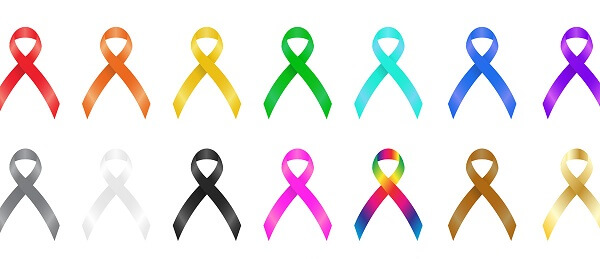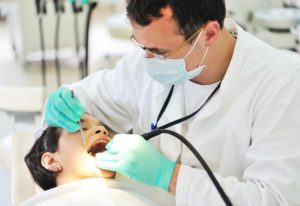What Is Anal Cancer?
Anal cancer is also called carcinoma of the anal canal. It is a serious medical condition where the abnormal cell grows in the anal area or anal canal. The anal canal connects the anus, which is the opening to the rectum. This passage is around 1-2 inches long and is the part of the body that excretes solid waste like bowel movements and feces. The anus is the end of the digestive system, which is made up of tissues from the skin and intestine.
Research suggests that half of the anal cancers are diagnosed before malignancy has spread beyond the primary site, whereas 13%-25% are diagnosed after the cancer has spread to the lymph nodes and 10% are diagnosed after cancer has spread to distant organs or has metastasized. If anal cancer is found early, it is highly treatable. The overall five-year survival rate after diagnosis of this disease is 67%-70%.
Causes Of Anal Cancer
Studies suggest that most anal cancers are diagnosed in people who are over 60 years of age. However, anal cancer is more common in men prior to age 35. Moreover, after the age of 50, anal cancer is slightly more common in women. Also, the incidence of anal cancer is six times higher in single men as compared to married men. Experts believe that receptive anal intercourse is strongly related to the development of this disease.
Anal infection with human papillomavirus (HPV) causes genital warts, which is a major risk factor for anal cancer. Immunocompromised patients having HIV disease are at a higher risk of getting anal cancer. However, in this group, the prognosis is worse than for non-immunocompromised patients. Gardasil, one of the HPV vaccines originally approved for the prevention of cervical cancer, is also approved for the prevention of anal cancer in both men and women.
Symptoms Of Anal Cancer
Bleeding is one of the most common symptoms of anal cancer. Anal itching can also be a symptom of anal cancer. But sometimes many people initially attribute their bleeding and itching to piles, which can potentially delay the diagnosis of anal cancer. Below are the other symptoms of anal cancer.
- Leaking stool
- Lump near the anus
- Pain in the anal area
- Change in bowel habits
- Pressure in the anal region
- Urge to have bowel movements
- Unusual discharge from the anus
Diagnosis Of Anal Cancer
The doctor first asks about your medical history, lifestyle, symptoms and family medical history. The doctor can detect anal cancer during a routine digital rectal exam or during a minor procedure such as removal of what is believed to be piles. The doctor may also detect anal cancer with a more invasive procedure such as an anoscopy, proctoscopy or endorectal ultrasound.
The anoscope is made up of a tube and a light that helps the doctor to see into the anal canal clearly. A proctoscope is a short, straight, rigid, hollow metal tube that is used to examine the anal cavity, rectum, or sigmoid colon. A proctoscope has also a small light bulb mounted at the end of it. The doctor uses ultrasonography during endoanal ultrasound to evaluate the depth, the different constituents of the wall of the anal canal and the latter part of the rectum as well as the surrounding area.
During diagnosis, your doctor may also do a digital rectal exam. During which, the doctor wears gloves, adds lubricant on a finger and then puts it inside the anus to feel a lump or other problems. If cancer is suspected, a biopsy should also be done and the patient should be examined by a pathologist. The diagnosis of anal cancer may include an abdominal and pelvic CT scan, a pelvic MRI scan to assess the pelvic lymph nodes, a chest x-ray and liver function studies as well.
Treatment Of Anal Cancer
Treatment of anal cancer largely depends on what type of cancer it is and how far it has spread from the point where it started. Also, the size of the cancer is also significant in its treatment. In any case, looking at the severity of your disease, your doctor will guide you when it is appropriate to go for treatment.
Anal cancer can be treated by removing the affected skin completely in its early stage that has not spread to the anal wall. Small tumors of one and half inch in size that have occurred into the anal wall can be also be potentially removed with the help of surgery. Usually, anal cancer does not require treatment with radiation or chemotherapy in the early stage.
During radiation therapy, the doctor uses equipment that focuses high-energy X-rays or particle streams at cancer cells in the body. However, the doctor uses drugs during chemotherapy to kill cancer cells. Some chemotherapy can be taken by mouth, while others must be given through the veins as a shot into muscle.
Abdominoperineal Resection (APR) is used to treat anal cancer when the cancer does not respond to any other methods of treatment or if the cancer comes back. If you have APR then you will need to have a permanent colostomy. In this case, a part of the colon is removed and the remaining part opens into the stoma on the abdomen. The stoma is covered by a pouch that helps stool in exiting the body. The doctor removes cancer cells with the help of APR from anus, rectum and large intestine by cutting into the abdomen. The doctor might also remove lymph nodes which have become cancerous.
Overview
There is no completely effective way to make sure that you do not get anal cancer. However, you can protect yourself by reducing some risk factors. Such as:-
- Not smoking cigarettes. Stop, if you smoke.
- Practice safe sex. You should use condoms if you engage in anal sex.
- Get the vaccine of papilloma virus (HPV) if you are in the group eligible to get it.
Most of the cases are cured by chemoradiation. Your doctor may recommend you to have follow-up visits to your doctor every 3-6 months for 24 months post chemoradiation is completed. You may also be suggested to continue surveillance over the long-term. Because some studies suggest that people with persistent or recurrent disease are treated more successfully when the cancer is diagnosed early.
Also Read: DoesPiles Lead to Cancer?





Be First to Comment